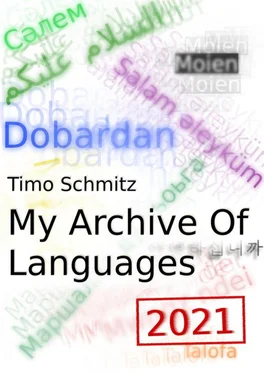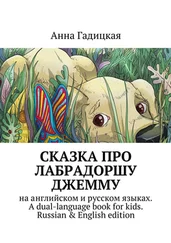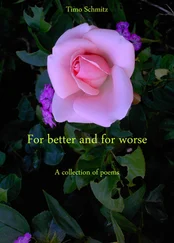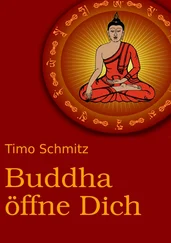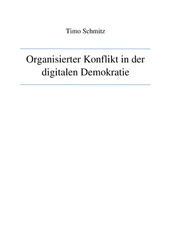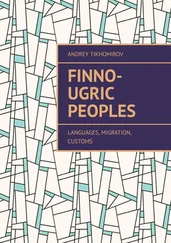Mayinfa3sh – It’s not right to do it.
muhim – important
gidid – new
9adim – old
Fi-lmishmish – Never!
Mumkin! – Maybe!
Mukhtamal! – Possibly!
Ana gahiz! – I’m ready!
Bahebak mut! – I love you so much!
qaroye, qareya – village
2aji – boy
mara – woman
beyt – house
gomlak – shirt
parchaye – piece
gharip – stranger
kteb – book
zanagin – rich
a2ta – you (m.sg.)
essah – now
el-2ab – the father
abu – father
abuyi – my father
akht – sister
khewat – sisters
el-akh – the brother
akhu – brother
akhuyi – my brother
em – mother
ente – woman
ensan – human
adam – human (cp. Jastrow, p. 8: wehed eben adam – a human)
abadan – never
atna – time
el-ahhad, nhar el-ahhad – Sunday
ard – earth
alf – one thousand
ana – I
ent – you (m. sg.)
enti – you (f. sg.)
enten – you (pl.)
Aysh? – What?
Ayn – Where?
Ahla wa sakhla – Welcome!
Roh allah ma2ek – God be with you! (when leaving)
All words were double checked by comparing them with the suggestions given in Otto Jastrow: Glossar zu Kinderib (Anatolisches Arabisch). Wiesbaden: Harrasowitz Verlag, 2005.
Spoken in: Southeastern Anatolia (Turkey), Northern Syria, Northern Iraq, West Azerbaijan (Iran), parts of Azerbaijan and Armenia, probably a few in Georgia
Official language in: -
Speakers: c. 200,000
Scripts: Modern Syriac alphabet
Slama – Hello! (cp. Arabic: Salam, Hebrew: Shalom, Classical Aramaic: Shlom)
Shlomo – Hello! (Western Assyrian)
Shlom lekh – Hello! (Classical Aramaic)
Dikhiwit? – How are you?
Dakhitun? – How are you? (formal)
Aydarbo at? – How are you?
At dikhiwit? – How are you?
Bashi wen – I’m fine (f.)
Bashiwin – I’m fine (m.)
Bahiwet? – Are you fine?
bash – fine, good
-i – denotes the 1 stperson singular (cp. Sorani: Bashim)
Tovo! – I am fine!
Kma shenet? – How old are you?
Ishmi … yo! – My name is… (Western Assyrian)
Bayinakh – I love you! (man to woman)
Bayanukh – I love you! (woman to man)
e – yes
la – no (cp. Arabic: la)
ana – I (cp. Arabic: ana)
at – you (cp. Hebrew: ata)
aten – you
akhni – we
Ma küdet? – What are you doing?
Min ko saym at? – What are you doing?
tumindi – nothing
Basema raba – Thank you very much!
Basmalukh – Please! (to a man)
Basmalakh – Please! (to a woman)
Fush bshlomo – Goodbye! (lit.: Stay in peace!)
Aloho amokh! – May God be with you!
Aloho amikh! – Bye!
Eastern Assyrian:
Yuma Brikha! – General greeting, lit.: “Good day”
Dakhit? – How are you?
Bashima – I’m fine (m.)
Bashimta – I’m fine (f.)
Min eket? – Where are you from?
Kma shinaywit? – How old are you? (m.)
Kma shinaywat? – How old are you? (f.)
Ta lakha! – Come here!
Turkish
Spoken in: Turkey, Northern Cyprus, Cyprus, Bosnia-Hercegovina, Serbia, Macedonia, Romania, Greece, Albania, Azerbaijan, smaller communities in Iraq and Syria, as well as Iran
Official language in: Turkey, Northern Cyprus, Cyprus, Iraq (minority language), Bosnia-Hercegovina (minority language), Macedonia (minority language), Romania (minority language)
Speakers: c. 80 million
Scripts: Latin
Azerbaijani
Spoken in: Azerbaijan, Russia (Dagestan), Iran (West Azerbaijan, East Azerbaijan); smaller communities in Iraq
Official language in: Azerbaijan, Dagestan (Russia)
Speakers: c. 25 million
Scripts: Cyrillic (in Russia), Latin (in Azerbaijan), Persian-Arabic (in Iran and Iraq)
Turkmen
Spoken in: Turkmenistan, Uzbekistan, Afghanistan, Stavropol Krai (Russia), Iran, Turkey (migrants)
Official language in: Turkmenistan
Speakers: c. 8 million
Scripts: Latin, Cyrillic (inofficially still used), Perso-Arabic (in Iran and Afghanistan)
Golestan Turkmen
Spoken in: Golestan Province (Iran)
Official language in: –
Speakers: probably less than 1 million, but more than 200,000
Scripts: Perso-Arabic (the dialects in Golestan have no official orthography)
Uzbek
Spoken in: Uzbekistan, Xinjiang (China), Tajikistan, Kyrgyzstan, Afghanistan
Official language in: Uzbekistan
Speakers: c. 27 million
Scripts: Latin (officially in Uzbekistan), Cyrillic (still widely used, probably by over 80% of Uzbekistan’s Uzbeks), Perso-Arabic script (in China and Afghanistan)
Kazakh
Spoken in: Kazakhstan, Russia (Altai Republic), China (Xinjiang), Mongolia (c. 200,000), Kyrgyzstan (c. 30,000) Iran (c. 10,000), Turkey (c. 10,000), Turkmenistan (small community of speakers of Western Kazakh, c. 100,000), Afghanistan (c. 40,000), Tajikistan (c. 15,000)
Official language in: Kazakhstan, Altai Republic (Russia), Xinjiang (China)
Speakers: c. 11 million
Scripts: Cyrillic (in Kazakhstan and Russia), Latin (planned to be introduced in Kazakhstan, used by Chinese Kazakhs on mobile phone), Perso-Arabic (mainly in China)
Kazakh in Kazakhstan
Spoken in: Kazakhstan (North-Eastern Kazakh and Western Kazakh)
Speakers: c. 6 million (Kazakhstan)
Scripts: Cyrillic, Latin (introduction planned)
Kazakh in China
Spoken in: Yili Kazakh Autonomous Prefecture including Altay and Tacheng, Xinjiang Uyghur Autonomous Region in the People’s Republic of China
Official language in: Yili Kazakh Autonomous Prefecture (Xinjiang, PRC)
Speakers: c. 1 million (Southern Kazakh)
Scripts: Perso-Arabic, Latin [Pinyin] (widespread use in the Internet)
Kyrgyz
Spoken in: Kyrgyzstan, China (Xinjiang), Russia (c. 100,000), Tajikistan (c. 60,000 - 70,000), Afghanistan (c. 1,000)
Official language in: Kyrgyzstan, Kilzilsu Kyrgyz Prefecture (Xinjiang, PRC)
Speakers: c. 4 million
Scripts: Cyrillic (in Kyrgyzstan), Latin (in Turkey; as means of transliteration in Kyrgyzstan), Persian-Arabic (in China and Afghanistan)
Kyrgyz in China
Spoken in: Kizilsu Kyrgyz Autonomous Prefecture in Xinjiang Uyghur Autonomous Region in the People’s Republic of China
Official language in: Kilzilsu Kyrgyz Prefecture (Xinjiang, PRC)
Speakers: c. 100,000
Scripts: Perso-Arabic, Latin (Kyrgyz Pinyin; used by young people on mobile devices if no Arabic script is available)
Karakalpak
Spoken in: Karakalpakstan (Uzbekistan), Kazakhstan
Official language in: Karakalpakstan (Uzbekistan)
Speakers: c. 500,000
Scripts: Cyrillic, Latin
Tatar (Volga Tatar)
Spoken in: Russia, China (Xinjiang)
Official language in: Russia (Tatarstan)
Speakers: c. 6.5 million
Scripts: Cyrillic
Bashkir
Spoken in: Russia (Bashkortostan, Tatarstan, Udmurtia, and surrounding oblasts), Kazakhstan (c. 10,000)
Official language in: Bashkortostan (Russia)
Speakers: c. 1.2 million
Scripts: Cyrillic
Kumyk
Spoken in: Russia (Dagestan, Chechnya, Stavropol Krai), Azerbaijan
Official language in: Dagestan (Russia)
Speakers: c. 400,000
Scripts: Cyrillic
Nogay
Spoken in: Russia (North Caucasus)
Official language in: Karachay-Cherkessia and Dagestan (Russia)
Speakers: c. 80,000
Scripts: Cyrillic
Uyghur
Spoken in: Xinjiang (China)
Official language in: Xinjiang (China)
Speakers: c. 8 million
Читать дальше
